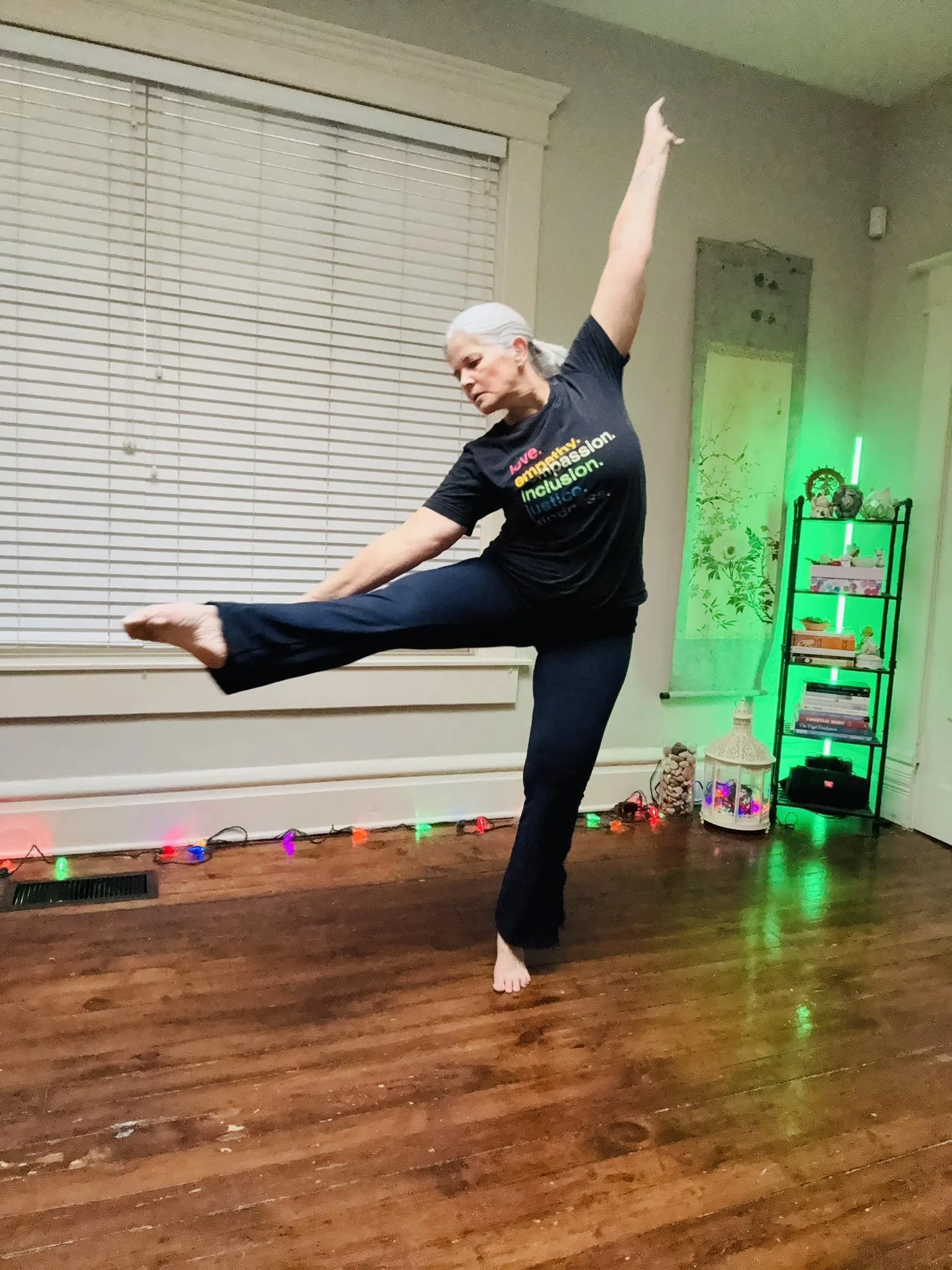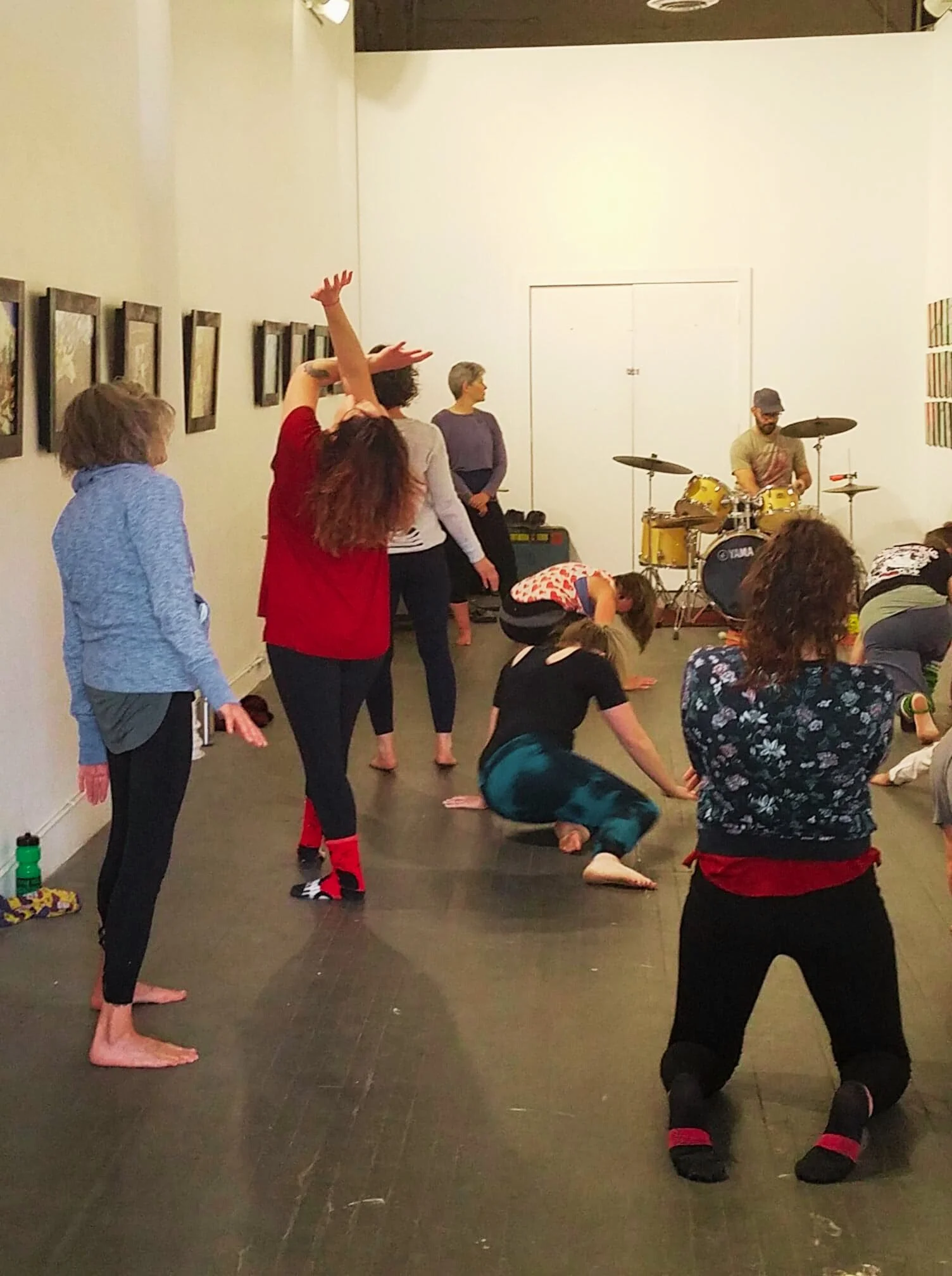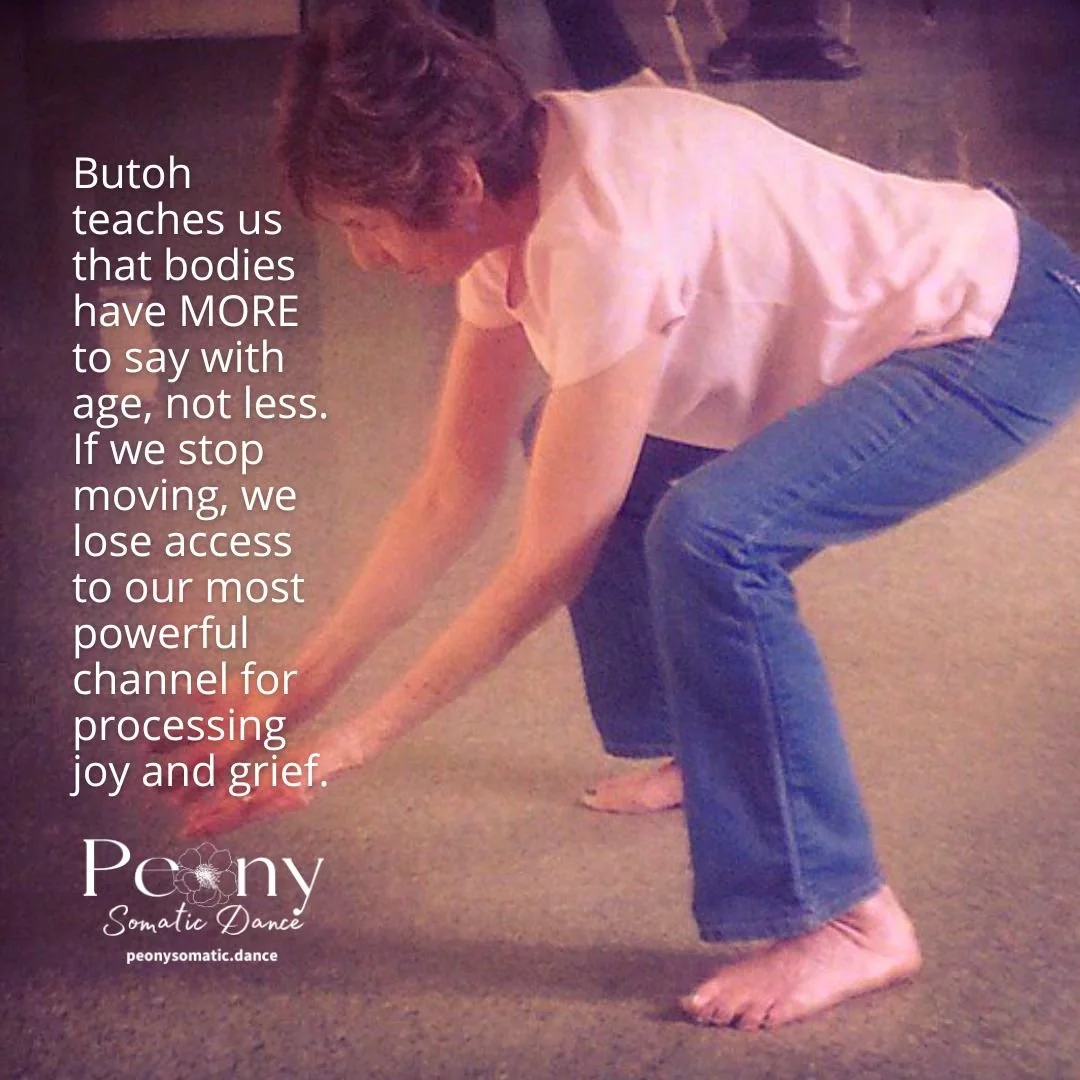Though I had a week with an exhausting head cold that interrupted my new routine, I have been getting back to daily dance. I have been managing a half hour. And for working by myself, this is a good start amount.
In the recent past when I’ve tried to do this, I immediately feel a deep boredom, so I thought back to my practices years ago and came up with a couple of…
Key “rules”
I can’t force myself into using music that I think I “should.” Yes, even I have this issue. I go into practice thinking I “need” to work on serious pieces. Nope. Whatever works is the best thing.
So I’ve been using a lot of pop music for now. Like this list and also this list that triggers joy molecules from my tween years at the skating rink.
And the most important rule of all: the second I feel bored with the music and/or my movement, I change the song. Sometimes that means fast-forwarding through a few songs at a time, waiting for my body to respond.
Finally, I always start with seated tummy circles, like I start just about every single class I teach. Or if I’m feeling extra dull or sad, I start with Mud Body and then go into seated tummy circles. I ritualize the start of my own practice time just like I do classes and this tells my body, here we go, and it grounds me… helps me to let go of work or overthinking.
Other rules to keep in mind about this sort of practice:
Don’t change your clothes if that’s getting in the way. Dance in whatever you’re wearing. Or maybe only change your pants. (I do that one a LOT.)
Don’t fret about space. You can dance in a closet.
Set time goals for yourself but don’t force it. But also don’t just give up. Find that delicate balance between the two.
Maybe find a friend (like me!) who could help you with accountability.
If you hear a song while you’re driving or doing something else that gets an immediate response from your body, make sure to put that on a list.
Let me know if you have any issues with getting into a daily practice or if there are any questions I can help you with.






